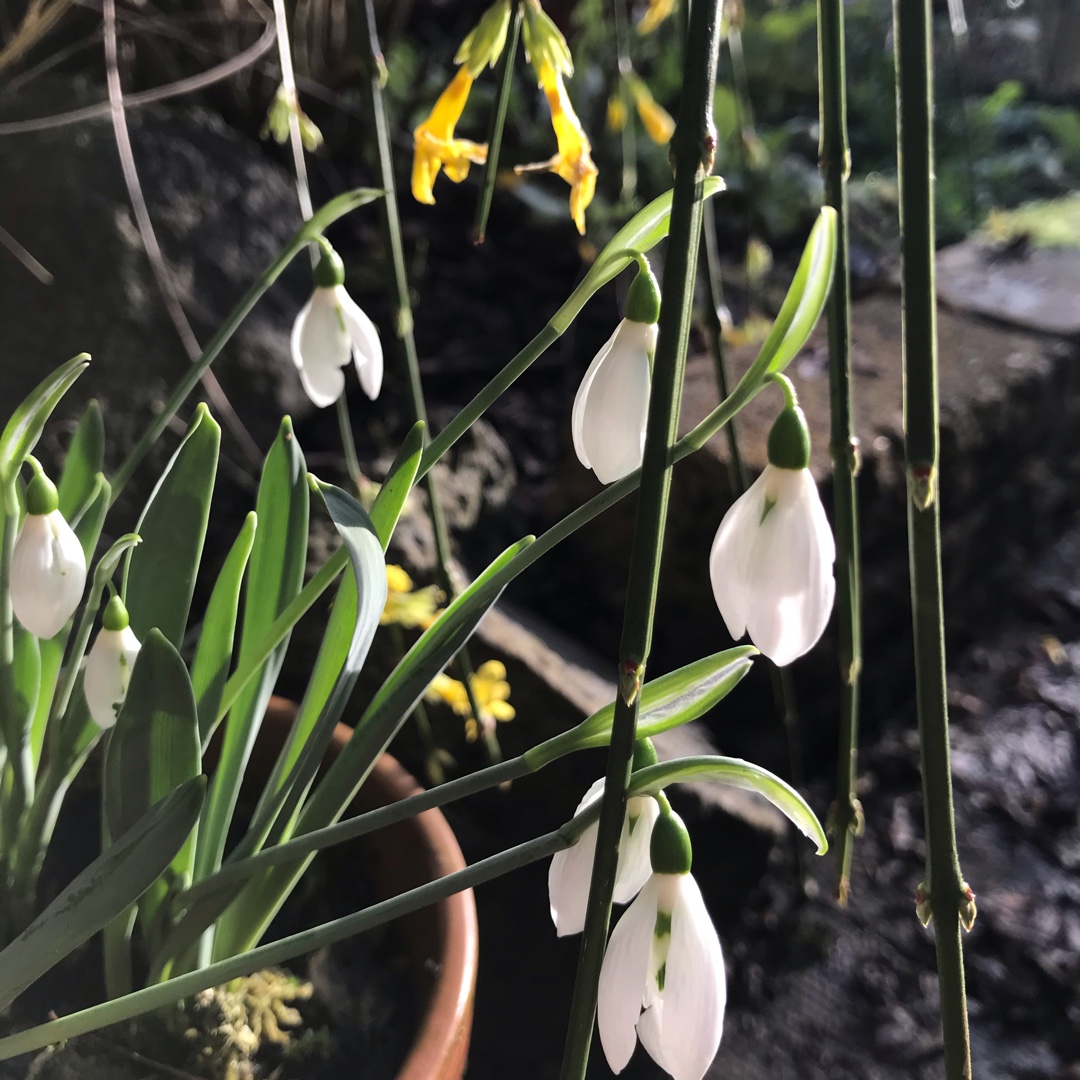
Galanthus 'Snow Fox'
Snowdrop 'Snow Fox'
A very hardy clump forming bulbous perennial with grass like green/grey leaves of varying thicknesses and bell shaped scented flowers of varying forms and shades of white/green markings. The first flower of the new year in the northern hemisphere. Snowdrops self seed. In full sun, it will survive but not increase well, it prefers moist but well drained woodland shade. 'Snow Fox' is a selected cultivar which is an early flowering form can show a green stripe on the outer petals. Some years it can be absent, or not on every flower from the same bulb.
Contributed by @davyc
-
Full sun to partial shade
-
Very little water
-
Full Frost Hardy: 5F (-15°C)
-
Free draining and fertile
Common name
Snowdrop 'Snow Fox'
Latin name
Galanthus 'Snow Fox'
type
Bulb
family
Amaryllidaceae
ph
5.0 - 8.5 Acid - Neutral
Plant & bloom calendar
-
Best time to plant
-
When the plant will bloom
full grown dimensions
 0.05 M
0.10 M
0.05 M
0.10 M
Galanthus 'Snow Fox'
A very hardy clump forming bulbous perennial with grass like green/grey leaves of varying thicknesses and bell shaped scented flowers of varying forms and shades of white/green markings. The first flower of the new year in the northern hemisphere. Snowdrops self seed. In full sun, it will survive but not increase well, it prefers moist but well drained woodland shade. 'Snow Fox' is a selected cultivar which is an early flowering form can show a green stripe on the outer petals. Some years it can be absent, or not on every flower from the same bulb.
Planting Season (Autumn)
From Late Summer TO Mid Autumn
Galanthus bulbs are usually planted in late summer/early autumn. They should be planted out as soon as available in the shops, as they can dry out quickly and lose their viability. Make sure bulbs are healthy before planting them (i.e. that the bulb is firm to the touch, and not showing signs of mildew). The bulbs can be planted outdoors, or in containers. Plant the bulbs in well-draining soil or compost. As a general rule when planting bulbs, they should be planted at a depth of three times the height of the bulb. If bulbs have been left to dry to long, try soaking them for a few hours to rehydrate them before planting. Plant bulbs into flowering position in early Autumn. They grow best in heavy loam with plenty of moisture and with some shade. They do well in open woodland and in grass under trees.They look best in groups or drifts
Flowering Season (Winter & Spring)
From Early Winter TO Mid Spring
Early bell shaped scented flowers, the first flower of the new year in the northern hemisphere
Propagate by Seed
From Mid Autumn TO Late Winter
Sow seed in pots outside in a sheltered position. Seedlings take up to 5 years to reach maturity.
Planting Season (Spring)
From Late Winter TO Mid Spring
Because snowdrop bulbs dry out so easily, most horticulturalists consider planting snowdrops 'in the green' is the best method. 'In the green' is planting the bulbs, or clumps of bulbs, just after they have flowered, and while they still have all their green leaves. Many garden centres will now offer clumps of snowdrop bulbs 'In the green' after flowering season. Plant the clump deeply and leave them to die off naturally, they will return the following year with flowers.










